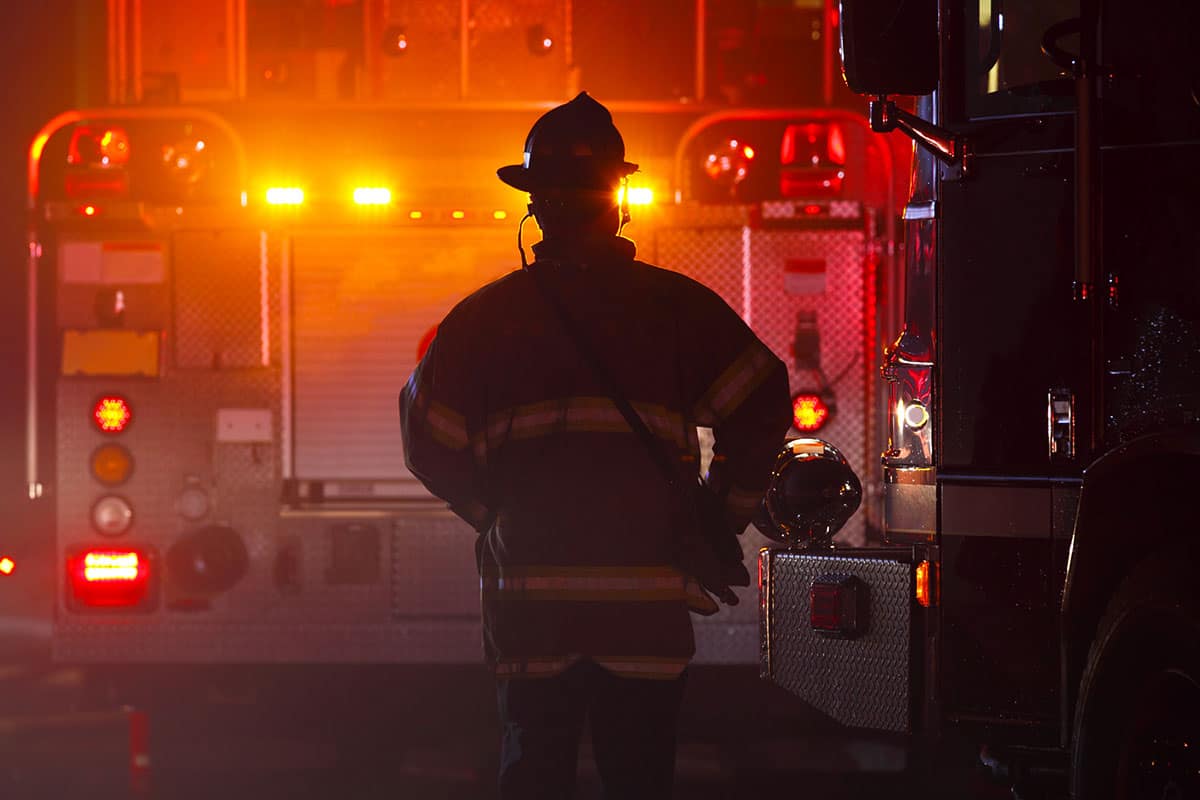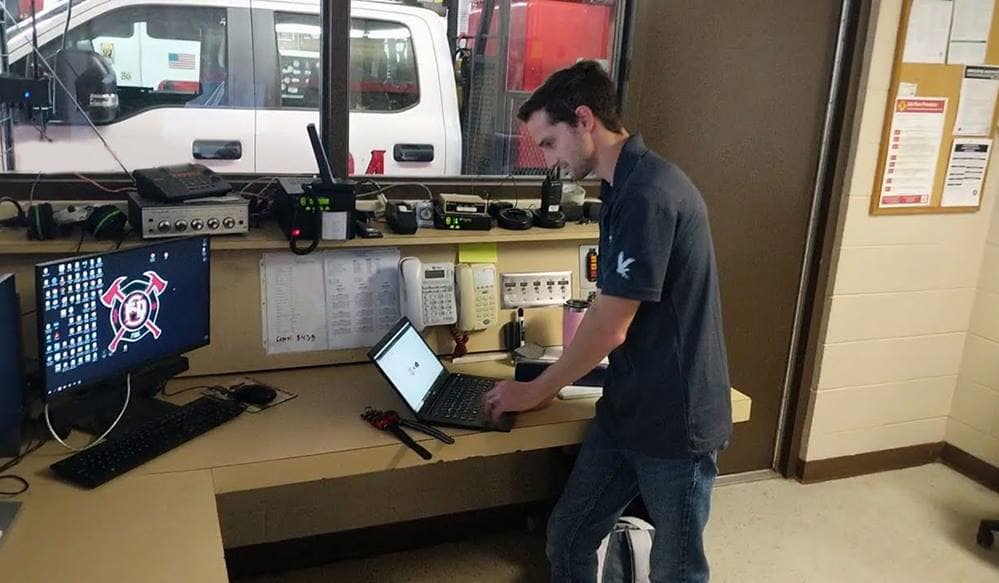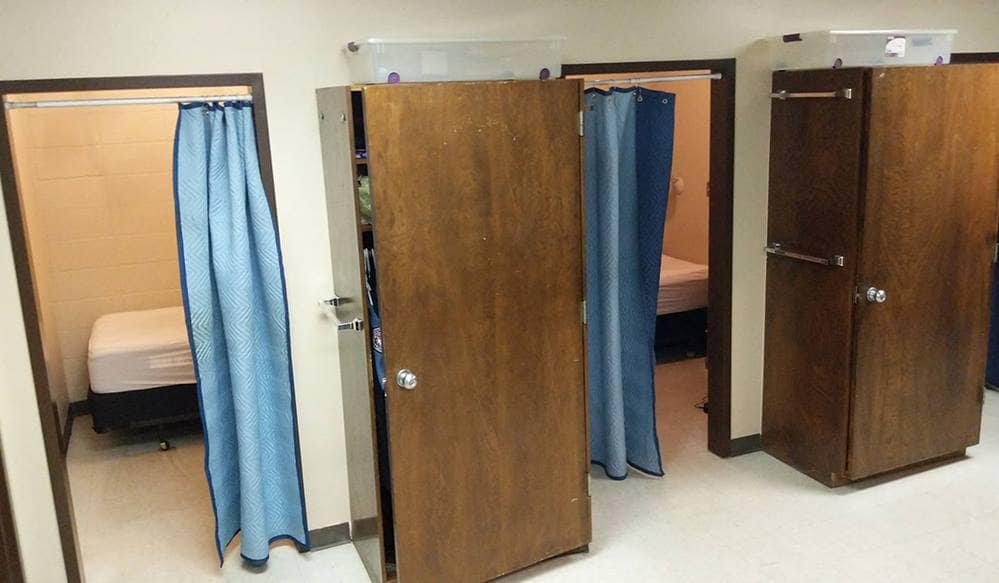Embry-Riddle Researcher Awarded $600,000 Federal Grant to Improve Firefighter Sleep Health

Embry‑Riddle Aeronautical University’s Dr. Joel Billings has received a $600,000 Early Career Investigator Award from the U.S. Department of Homeland Security's Federal Emergency Management Agency (FEMA) for research on the safety-critical topic of firefighter sleep.
The nature of firefighting often requires sleep interruptions — and a demanding level of performance despite those interruptions. At the same time, firefighters who suffer from sleep disorders are more likely to experience cardiovascular disease, depression, anxiety and vehicle crashes, said Billings, an assistant professor in the College of Arts and Sciences at Embry-Riddle’s Worldwide Campus and chair of the online Bachelor of Science in Emergency Services program in the college’s Department of Security and Emergency Services.
“The idea of optimizing sleep health is important because, basically, if you don’t sleep, bad things can happen,” Billings said. “The reality is there is a significant relationship between the amount of sleep firefighters get and their overall level of performance, morbidity and mortality.”
Billings’ interest in firefighting began when he was a child. His family owned antique firetrucks, which they displayed at parades and celebrations, often demonstrating their water-shooting abilities. In high school, he entered a firefighter cadet program, and after high school, he became a volunteer firefighter and EMT-Basic. Along the way, he decided he wanted to continue helping his community, but on the firefighter side.
“I wanted to look after the people who take care of people,” he said.

Dr. Joel Billings conducts research at the fire department in Stillwater, Oklahoma. (Photo: Joel Billings)
While in college, he was exposed to a report called “Effects of Sleep Deprivation on Fire Fighters and EMS Responders,” which was produced 16 years ago and remains the only national sleep guidance available.
“I finished reading that report with more questions than when I’d started it,” Billings said. “So that’s what captured my attention.”
Realizing he enjoyed academic research, Billings studied different types of firefighter work schedules, ultimately focusing his Ph.D. on comparing the effects of a 24/48 schedule (24 hours on, 48 hours off) to a 48/96 schedule (48 hours on, 96 hours off) and documenting that the 48/96 arrangement, being less erratic and involving less commuting, was less disruptive to the firefighters’ sleep patterns. According to the science of sleep and circadian rhythms, establishing a sleep pattern is critical, Billings said.
The FEMA Early Career Investigator Award that Billings has received will allow him to identify information that needs to be updated and expanded in the “Effects of Sleep Deprivation on Fire Fighters and EMS Responders” report, Billings said, adding that the report does not reflect considerable research advances that have been made since its publication. Billings’ work will involve a stakeholder panel made up of firefighters, national firefighting organizations and sleep/health experts to focus on what fire departments and firefighters need in order to improve sleep health. Using that information, Billings will conduct a mixed-methods research study, assessing the sleep of both career and volunteer firefighters and the effects of sleep on performance and health. The study will be a first in exploring how volunteer firefighters sleep, Billings said. Despite volunteers' significant role in firefighting, they are often neglected in health and safety research.
By understanding how and when firefighters sleep throughout their work weeks, that information can be used to help develop interventions to optimize sleep health.
“The fire service is unlike other high-risk occupations and, therefore, dedicated studies conducted with and for firefighters are needed to produce sleep-related guidance,” Billings said, adding that the results of his research will be disseminated to fire departments throughout the United States. “Because this is a collaborative project, we are confident that the outcomes produced will be widely accepted by career and volunteer firefighters and fire departments.”

Firefighters' sleeping quarters. (Photo: Joel Billings)
Starting last year, Billings has worked on other research, funded by a National Institutes of Health Small Business Innovation Research grant, that looks at replacing the klaxon bells in fire stations that awaken firefighters to an emergency call. The work implements a clinical trial to determine the effects of a new firefighter alerting system that's like a vibrating watch, designed to lessen cardiovascular burden (startle response) when firefighters are notified of a call. With evidence that the klaxon bells sometimes provoke tachycardia, or a heart rate of more than 100 beats a minute, the research proposes a kind of vibrating watch to replace the bells.
“Instead of a bucket of ice water, it’s more of a gentle shaking,” Billings said, comparing the klaxon bells to the new alerting system.
Billings and his colleagues are planning to submit a $2 million Phase Two grant proposal, which is due in early 2024, with more cardiac measurement and a larger clinical trial.
Regarding his Early Career Investigator Award, Billings said its benefits could go “well beyond the individual firefighter’s safety, health and well-being,” affecting firefighters’ performance and service delivery in the communities they serve.
Dr. Jeremy Ernst, vice president for research and doctoral programs and professor in the Department of Behavioral and Social Sciences of the College of Arts & Sciences at the Worldwide Campus, agreed.
"Dr. Billings' research stands to provide impactful guidance to a field dedicated to public safety," Ernst said. "In doing so, it has high potential to lead to improvements in the health and well-being of those who safeguard all of us."

 Michaela Jarvis
Michaela Jarvis